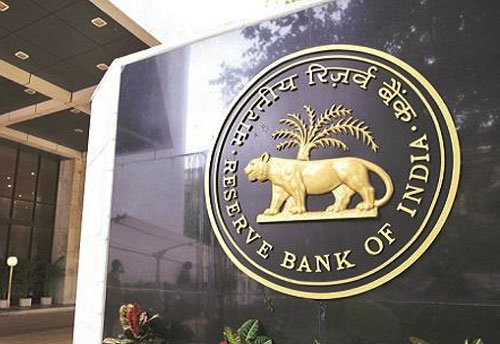Wealth creators in different fields in India need to be respected: Expert on RBI's IWG proposal
Updated: Nov 25, 2020 09:12:59am

Wealth creators in different fields in India need to be respected: Expert on RBI's IWG proposal
New Delhi, Nov 25 (KNN) Former Reserve Bank of India (RBI) Governor Raghuram Rajan and Deputy Governor Viral Acharya's LinkedIn post over RBI's proposal to allow business houses into banking seems to have sparked a row as some are criticising them while a few are considering their arguments.
As both of them have raised adverse notes on timing of the move, economist and tax expert Yogendra Kapoor is of the view that RBI’s proposal to allow business houses into banking should have been done long back.
''I feel that the wealth creators in different fields in India need to be respected in intent and spirit and just not pulled down with suspicion. The banking Industry in India barring an Institution like HDFC has not grown in size, net worth and asset quality since our independence as have banks grown in state run China or capitalist United States of America,'' he told KNN India on Wednesday.
He said that the question we need to ask ourselves and introspect is as to why India does not have a single biggest bank in the list of top 10 banks of the World. Banking is Business and needs to run on policies framed by the regulator and free market mechanism in management of its Affairs.
''RBI should enforce strict parameters in its selection process through due diligence of corporate houses in terms of their net worth, listing in Stock markets and quality of assets owned by it.,'' Kapoor added.
Its role should be restricted on regulation and administration and not interfere in the day to day functioning of the bank. World class institutions are built on foundations of trust and competence, he said.
While advocating his arguments in favour of the RBI Internal Working Group's (IWG) recommendation to allow Indian corporate houses to set up banks as part of proposed changes to the banking sector, he said, ''A person with proven track record and decades of experience in running varied businesses understands the value and utilization of fund better than an Administrator.''
''It's a positive move with which a corporate house can balance and cater to all sections of the society including stressed businesses in SME/MSME and serve better as ultimate objective will be growth and value creation in the changed formal business banking environment,'' he added.
In his LinkedIn post the former RBI governor has criticised IWG and said that it would further exacerbate the concentration of economic (and political) power in certain business houses.
“Why now? Have we learnt something that allows us to override all the prior cautions on allowing industrial houses into banking? We would argue no. Indeed, to the contrary, it is even more important today to stick to the tried and tested limits on corporate involvement in banking,” Rajan and Acharya’s joint statement, released on Rajan’s LinkedIn handle, read.
The duo further said that when the industrial houses would need financing, they would get that without any question fr0m the banks floated by them. Banks in India are rarely allowed to fail, which helps them garner huge deposits. If they are owned by industrial houses, it can lead to bad lending.
“The history of such connected lending is invariably disastrous – how can the bank make good loans when it is owned by the borrower? Even an independent committed regulator, with all the information in the world, finds it difficult to be in every nook and corner of the financial system to stop poor lending. Information on loan performance is rarely timely or accurate. Yes Bank managed to conceal its weak exposures for considerable periods,” the authors said.
They further wrote that some favoured ones are expanding merrily, financing assets purchases with yet more borrowing, imposing greater risks on the system.
Moreover the regulators can succumb to either political pressure or the urgency of the moment, they said.
Last week, an RBI panel had proposed that large corporates may be permitted to promote banks, as well as raising the cap on promoters' stake in private sector banks to 26 per cent, fr0m15 per cent at present.












